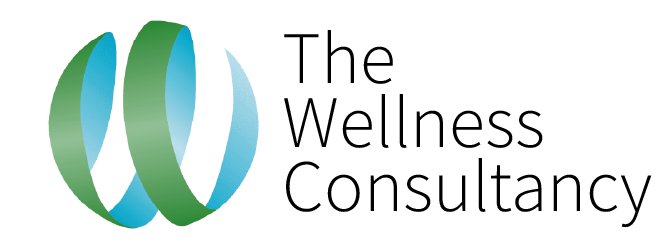Loneliness and addictions in the festive period
The festive period can be a difficult time for many people (along with other Bank Holiday periods). Covid-19 sadly created many bereavements and people were not able to grieve in ‘normal’ ways so we are seeing an increase in what therapists call more ‘complicated bereavements’. This can of course impact on how we feel about family celebrations.
Loneliness is a common feeling. Research by The Marmalade Trust identified that many young and older people feel lonely. They found that a proportion of every single age group feels lonely. The BBC’s Loneliness Experiment found that 40% of younger people feel lonely compared to 27% of people over the age of 75. Take a look at their guidance and understand the different types of loneliness.
https://www.marmaladetrust.org/loneliness-guide
Look at how you can make connections with other people but also animals, nature, how to deepen your connection with yourself in a positive way to create feelings of satisfaction. This may be starting a new interest, hobby or becoming involved in an activity.
If you are dreading the festive period due to feeling anxious about loneliness there are so many ways to connect with others in person locally and various helplines available both online and by phone. The guide below gives full information of all services open.
https://www.itv.com/thismorning/articles/christmas-helplines
Also the reality of the ‘family’ Christmas is often not what it seems on the outside. Very sadly there are many relationships which end in January/February and family conflicts are not uncommon during this time. Being free to do what you would like to do and how you do it without compromising and negotiating can offer singletons an advantage compared to those in difficult relationship situations.
Fully enjoy what you do
Whatever your favourite way to ‘treat’ or ‘reward’ yourself do it mindfully – fully focus on it to get the maximum enjoyment from every sip, mouthful or moment of the activity whatever it is. Try these mindful techniques when you are eating, having an alcoholic drink, buying something or gambling online:
https://www.healthline.com/health-news/what-is-mindful-drinking#What-is-mindful-drinking?
https://www.fitmind.co/blog-collection/mindful-eating-exercise-script
If you notice that you are tempted to keep having more try this simple technique to slow down your decision making and reduce the risk of binging – Delay, Distract, Decide http://www.get.gg/docs/3Ds.pdf
10 Top tips for change
- Identify what problem behaviour you’d like to change
- Honestly explore why this has become problematic in your life now
- Look at yourself with compassion and kindness as you would do if a friend were sharing this with you
- What triggers it? What is the context around why things have changed? What is the problem associated with? How do you feel before, during and after?
- Identify ways you can break the unhealthy cycle. It may be something simple – avoiding an aisle in the supermarket, cooking with someone else around, changing the time or place you do something
- Look at how you can realistically make changes and write these down
- Share your goal with someone else
- Monitor and review your progress every week and write this down
- Accept that lapses are part of the process of change. Go back to plan when this happens and acknowledge its part of the learning process. Adapt your plan with what you’ve learnt
- Recognise the importance of what you’re doing to improve your life now and stop negative thoughts about the past
There are many reasons why bad habits develop into an addiction. These things positively affect how you feel both physically and mentally, which can give pleasure or relief so create a powerful need to repeat the act. For example, when gambling the ‘win’ gives a mental high so much so a person will chase that same adrenalin rush again and again. The targeting of women by online gambling providers is creating a huge rise in debts in this group.
In younger people a large proportion of clients started misusing substances or alcohol early on. They may have had parents that were drug/alcohol dependant, mixed in a social circle where this was the norm so their early childhood experiences gave them a distorted view of alcohol/drug misuse ‘normalising’ that activity and was a way of blocking out their emotions. The main referrals into Young People’s substance misuse services are currently for alcohol and cannabis with a concerning increase in the use of Ketamine. Some stimulants are still an issue and require support particularly linked to sport and performance.
The cycle of addiction
To maintain an addiction is both mentally and physically exhausting, which can impact on both your work, personal life and relationships but most importantly it lowers self-esteem. Many people with addictions lie on a regular basis to keep their addiction secret which can cause an immense amount of pressure, feelings of guilt and shame. This significantly impairs our day-to-day functioning and ability to concentrate, focus and perform in the areas of our lives that matter the most to us.
Other negative impacts can include socially withdrawal, lack of libido, depression, anxiety, loss of relationships, debts and even possible criminal activity. The link between addictions and domestic abuse is well documented.
Making changes in 2023
Any difficulty is treatable if we are ready and willing to make the necessary changes. We need to look at the ‘what’s in it for me’. Making change for the benefit of others is rarely sufficient motivation to maintain this in the long term. We talk about making new year’s resolutions. Often these goals fall by the wayside in February. This is often because we have over-stretched ourselves and goals we set aren’t realistic or achievable.
There are many ways to help yourself. Talk to your GP about concerns who can also signpost you to local services. Talk to a friend or family member. Join a self-help group online.
Take a look on our website thewellnessconsultancy.org for helpful guidance or contact us for support and advice.
Best wishes to you for a healthy start to 2023.
Email: wellness-consultancy@outlook.com
Website: wellnessconsultancy.org Contact Tel: 07759 516241
Further advice
https://www.itv.com/thismorning/articles/christmas-helplines

